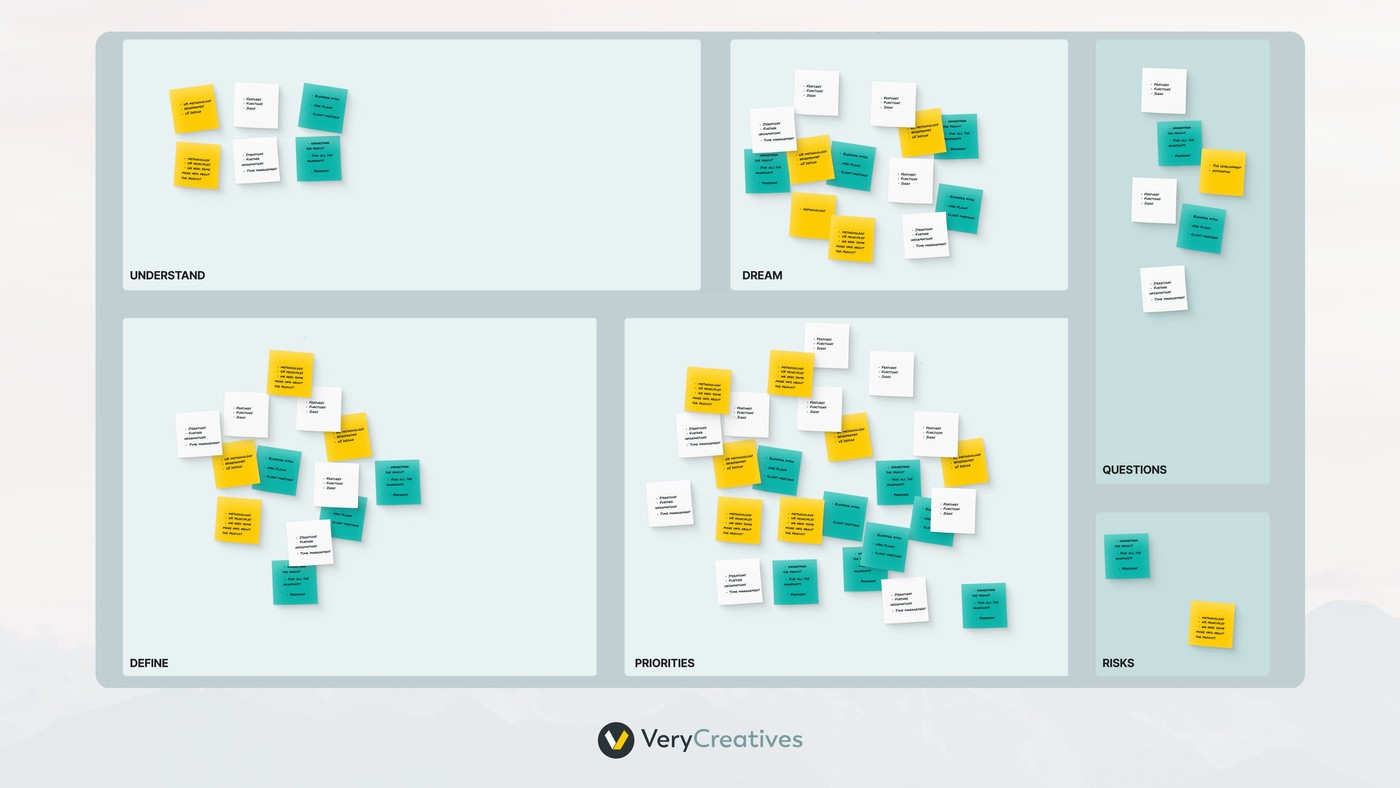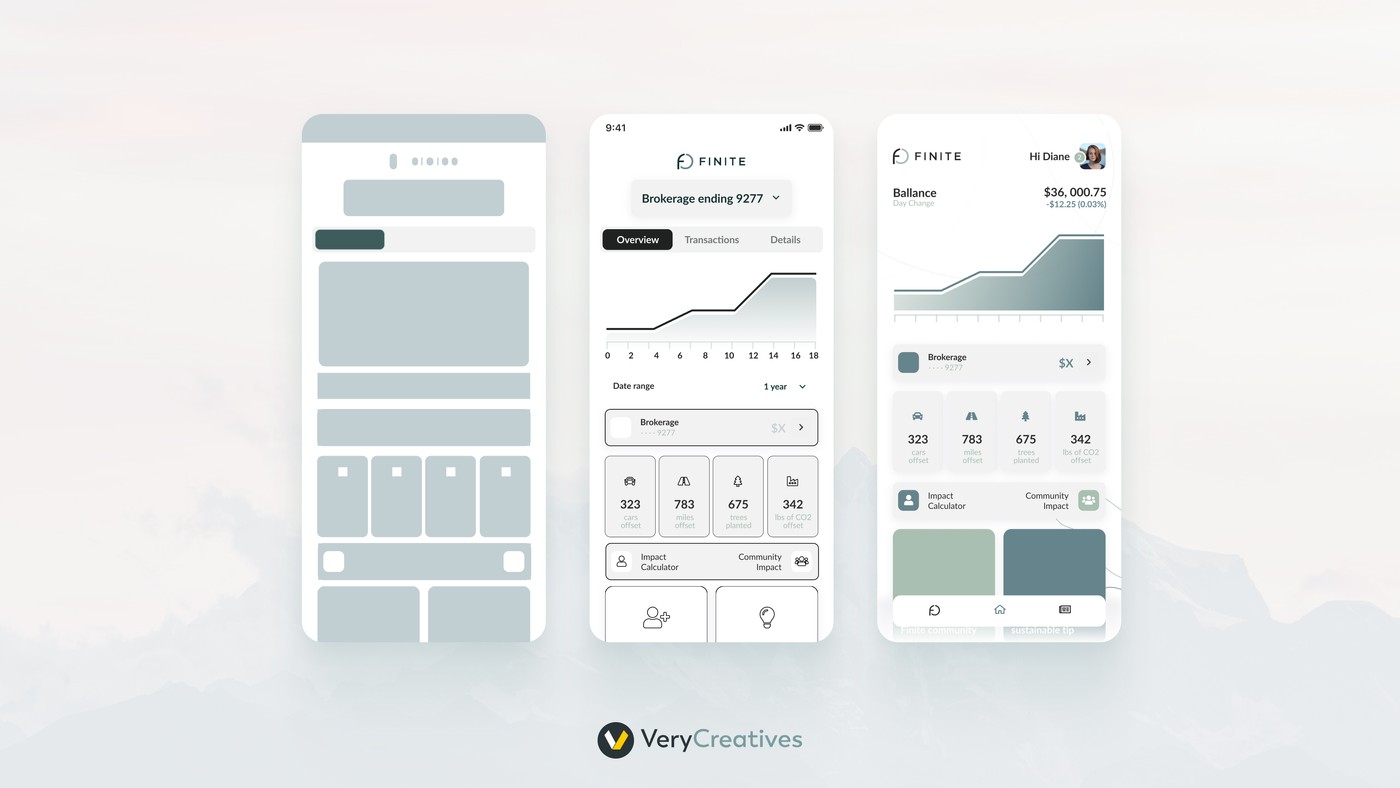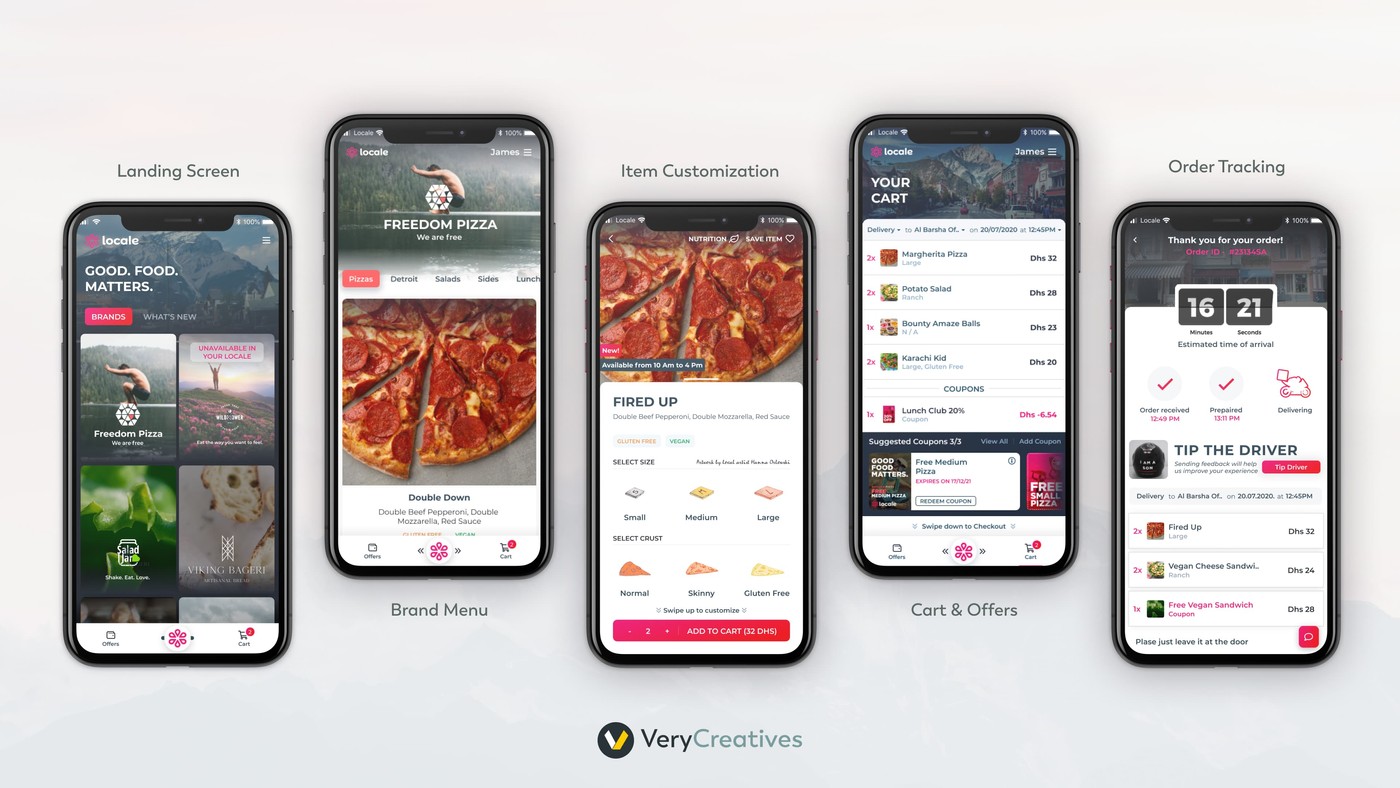When you start developing your Minimum Viable Product (MVP), you must have a solid plan that can be executed smoothly.
Having the right MVP development service can help you do just that. It can help you create an MVP that enables you to collect valuable customer feedback and test your hypotheses about the product.
In this article, we’ll discuss everything you need to know about a good MVP development service and how to find the right one.
Building an MVP Alone vs. Hiring a Development Service
While outsourcing MVP development can offer significant advantages, it certainly doesn’t mean you can’t do it on your own. In this section, we will explore how both options stack up against each other.
The first thing to consider is your budget. If you think you can add MVP development experts to your team, buy the right tools, and set up the relevant infrastructure, then it might make sense to go solo.
However, for many startups operating on a lean budget, cost savings are crucial. If that describes your situation, it’s ideal to limit your expenses by outsourcing the development work to an MVP service.
The professional teams and efficient processes of an MVP development agency can take quite a load off your shoulders. It can reduce your time to market and keep pace with your product’s demand.
As a startup founder, your to-do list is already pretty extensive, with tasks ranging from payroll to HR. Outsourcing MVP development means one less headache to deal with!
However, there are downsides to outsourcing as well. From communication challenges to consistency issues, there are quite a few challenges that come with this process.
However, you can mitigate these challenges by working with a reliable MVP development agency that maintains high standards.
In the next section, we will talk about the main features of such an agency.
What Are the Elements of a Good MVP Development Service?
Building your MVP with the right Development Partner is one of the most effective ways to validate your product idea. But only when your service provider maintains high-quality standards.
We’ve broken down the key elements that make an MVP development service stand out:
Resource Allocation
A competent MVP development service should have a knowledgeable team. They should analyze market trends and help utilize resources at different stages.
One of the main differences between working solo and working with an MVP service is industry expertise.
For example, consider you’re making an MVP for a mobile banking app. At first, you might only think of incorporating two-factor authentication or encrypted databases.
However, an MVP service who knows the industry trends better would advise differently. They might suggest additional security measures like blockchain technology.
On your own, you would only think of using standard security protocols. However, a knowledgeable partner can introduce you to more cutting-edge solutions.
Their suggestion not only enhances security but also adds a layer of transparency. This is a key factor that users value in the finance sector.
Partnering with a development service doesn’t just support your initial ideas. It brings forward solutions you might not have considered.
This approach can lead to a more innovative, market-ready MVP. It also gives you a competitive edge in the fast-evolving fintech landscape.
User-Centric Design
A user-centric design is vital to a good MVP. The development service should focus on creating products with your users’ needs, behaviors, and preferences in mind.
For this approach, the service should perform extensive user research, testing, and feedback. This ensures the final product is not only functional but also intuitive and satisfying for your users.
For instance, suppose you’re developing a fitness app. You might assume that what your readers need most is advanced tracking features.
However, an experienced development partner would conduct user research first. They might find out that most users are actually seeking motivational elements and easier app navigation.
Thus, the ideal MVP design would balance advanced tracking with motivational features and a user-friendly interface. This could help you create a product that better meets your user expectations.
Technical Expertise
The service should have a team with strong technical skills to build a functional MVP. These skills may include:
- Being proficient in programming languages
- Understanding of software architecture
- Experience with different development frameworks
- Knowledge of current technological trends.
Imagine you’re making an MVP for a social media analytics tool. You might focus on basic data-gathering features or only on technologies you’re familiar with.
However, a good MVP development service might suggest implementing more advanced data processing techniques. This may include machine learning for deeper insights or scalable cloud-based solutions for data handling.
A development partner can help enhance your vision with more efficient technological solutions that you may not be familiar with.
Agile Development Practices
Agile development practices involve an iterative approach to product building. The software development service should strive to continually improve your MVP and adapt to requirements as they change.
The service should also incorporate regular feedback so your MVP evolves in line with your user needs.
As an example, imagine your MVP as an educational platform. You might think the core need of your target audience is a series of basic video lessons.
Although this is a straightforward approach, you could lose the opportunity to create more engaging content for the students.
In contrast, an MVP development service may start with basic lessons as well but quickly adapt to add more content. Based on user feedback, they might realize the students respond better to more interactive content.
And so, the service could add features like interactive quizzes and real-time feedback mechanisms. This process could further reveal the need for community discussion forums, too.
A good MVP development partner may have a more agile approach than you. Their expertise can help your MVP evolve with feedback rather than be based on initial assumptions alone.
Cost-Effectiveness and Transparency
Cost-effectiveness and transparency are crucial aspects of an MVP development service. An MVP service should ensure you get the maximum value for your allocated budget.
Additionally, they should clearly communicate about the development process, timelines, and budgetary concerns. Focusing on both these aspects ensures you have no surprises in terms of expenses or project outcomes.
Imagine you’re developing an online language-learning platform. In your mind, you might envision a platform with advanced features like AI-driven language assessments from the very start.
Although that’s an ambitious plan, this approach could lead to high development costs and problems, potentially delaying the project.
Meanwhile, a good development partner would likely recommend starting with a more focused approach. For example, they might suggest initially launching the platform with core features like text-based exercises in just a few popular languages.
This strategy would reduce initial costs and allow for quicker market testing. The partner would ideally update you regularly on progress and explain why they’d prioritize or defer certain features.
Post-Launch Support
Post-launch support in MVP development is more than just fixing bugs and addressing technical issues. The ideal service should regularly update, optimize, and add new features to your MVP based on user feedback.
Let’s take an example from the healthcare industry. Suppose your startup has launched an MVP of a telemedicine app.
Initially, you might only focus on basic functionalities like video consultations and managing prescriptions. Nevertheless, relying only on these features might put your app at a disadvantage in a rapidly advancing field.
However, with a competent MVP development partner, you could have a better approach. They might suggest integrating AI-based diagnostic tools or adding a mental health module based on user feedback.
These additions would enhance your app’s value and also show how committed you are to meeting evolving healthcare needs.
How an MVP Service Agency Should Build Your MVP
Your MVP is a core part of your product’s success in the market. Thus, the MVP service agency you employ needs to be efficient and follow a structured approach to help you move past product validation as soon as possible.
Here’s a breakdown of how an MVP development service should handle each stage of the development process.
Business Analysis
In the initial stage, the MVP agency should understand:
- Your startup’s vision
- The potential market demand
- Your target audience
- The problem your MVP aims to solve

For example, suppose you want to enter the food delivery space. After understanding your goals, the MVP service should conduct market and competitor research.
The findings from this research will give you a clear idea of the features and integrations that would make your app stand out.
If most food delivery apps have complicated UIs, perhaps you need to focus on a minimalistic design. Or maybe your competitors haven’t come up with a way to show restaurant ratings to customers; you should totally add that feature!
The service should also identify potential gaps in the market. This process can help establish what your MVP’s unique selling point should be to help it stand out.
A unique selling point (USP) is what differentiates your product from the competition. In the food delivery app example, your USP would be restaurant ratings, since that is a helpful feature missing in other apps.
Design
The agency should create a design that balances function and aesthetics. It should be simple, user-friendly, and intuitive but also fulfill your users’ needs.
For instance, take the food delivery app mentioned above. A clean and minimal design could be just what you need to stand out in a crowd of complex UIs.
Moreover, navigating from one page to another as a user can either be a smooth journey or a tedious one. You want to ensure it’s the former for your app!
To design smooth user navigation, the MVP agency could start by creating wireframes.

Wireframes are the “bones” of a website, stripped of color and detail. They lay out where menus, buttons, and content will go in a clear manner.
These wireframes can build a journey that takes the user from the login page to the order placement page.
This process ensures that the core of your app - efficient and user-friendly food delivery - is never lost. Every line drawn in the wireframe serves this single, unwavering goal.
Development
After the design, the MVP service agency should build essential features in the MVP. These features can satisfy early adopters and help collect feedback for future developments.
The team should also use agile methodologies, like Scrum. These methodologies make quick iterations based on user responses.

In our food delivery app example, the agency should make a functional version with the most relevant features.
One of the first features it could focus on is a robust ordering system. A well-developed ordering system should be intuitive, allowing for easy navigation through food categories and menus.
Yet another crucial feature would be the payment gateway, which must be secure and reliable. The agency should integrate various payment options, like debit cards and cash on delivery, and adhere to the latest security standards.
Other features like real-time order tracking (for users) and GPS navigation (for riders) will make your app stand out as well.
Delivery
The delivery phase involves more than just completing the MVP. The MVP service should form a strategic plan to effectively launch your MVP in the market to your intended audience.
The delivery phase involves more than only completing the MVP. The MVP service should form a strategic plan to launch your MVP in the market.
As an example, the agency should launch the MVP for your food delivery app on app stores. They can then attract early adopters through social media marketing.
A good MVP agency understands the power of marketing. To boost your MVP’s visibility, it should create launch campaigns and reach out to potential users through targeted ads.
Aside from marketing, your development partner must also thoroughly test your app in this phase.
It could test the app for:
- Usability: To ensure the app is intuitive and easy to navigate.
- Performance: To verify the app’s speed and responsiveness under different conditions.
- Security: To safeguard against data breaches and ensure secure transactions.
This step will also involve any final optimizations that the MVP could use. For instance, if the restaurant menus are loading too slowly, the load times need to be improved before launch.
If the delivery phase is handled well, you will rest easy knowing that your target users have the best possible version of your MVP. Therefore, all feedback that you get will be reflective of the true essence of your dream app.
Support
After launching your MVP, the service agency should help you fix technical issues and collect user feedback. This kind of support will help you in the iteration process so you can make the necessary changes based on real-world market responses.
For your food delivery app, the team should analyze user behaviors. Understanding user behavior can help pinpoint which features are more popular.
The results can provide insights into which features need improvement. These features should be where you focus your time and resources next.
For instance, suppose your restaurant rating feature receives a mixed response. Some users find it helpful, while others think it’s still too vague for their decision-making process.
This feedback tells you two things: you’re on the right track with the feature, but there is room for improvement. Perhaps the next iteration could include textual customer feedback alongside the rating system.
Needless to say, it’s crucial that your MVP development partner does a good job of collecting this feedback and acting upon the results.
What Tech-Stack Should an MVP Development Service Have?
Choosing the right technology stack is an integral part of your MVP. An MVP development service should choose a tech stack that’s versatile and well-suited to your project’s needs. Different tech stacks work best for different products. Let’s take a look at some of the tech stacks the MVP service should use:
- Front-End: It should use the right front-end tech to create a responsive and intuitive UI. If you want to create a website, React.js or Angular are good options.
- Back-End: It should choose languages and frameworks that are robust and scalable. Node.js or Ruby on Rails are great options for rapid development, while Elixir works well for large number of concurrent requests with a low memory footprint.
- Mobile: It should be able to handle both native and cross-platform mobile development. Frameworks that can work well here include React Native or Flutter.
- Databases: It should help you figure out the right database tech for your use case, be it MYSQL, PgSQL or NoSQL. Databases are key for data management and scalability.
- Infrastructure: It should know how to use platforms like AWS and Azure for hosting and storage. These tech stacks offer scalability, reliability, and a range of services.
- Project Management: It should use project management tools to track development progress. Tools like Jira and Asana can help you manage time and help team members collaborate with ease.
How to Choose a Reliable MVP Software Development Company
Choosing the right partner can make a vast difference when developing your MVP. You should hire a software development company based on several factors:
Assess Their Experience in Your Niche
The ideal MVP development company is one with experience in your niche. It can better understand the challenges and opportunities your specific industry presents.
For the food delivery app example, it would make sense to work with an MVP service that has experience in the food delivery space. Such an agency would know exactly what tech stack would be ideal, or what features could make your app a hit.
For instance, while working with Locale - a foodtech startup based in Dubai - we discovered the importance of using parallel processing to make the platform scalable when customers place lots of orders in peak times. On the feature front, we learned that users love being able to customize their orders based on their dietary profile.
The company you hire should know the latest industry trends and technologies. Knowledge of such trends will ensure your MVP not only addresses current market needs but also has the potential for future growth and scalability.
Examine Case Studies for Similar Projects
Look into the MVP service’s case studies of similar projects to see if they’re the right fit for your startup. You can learn more about them by assessing how they tackled problems in their projects.
Moreover, pay attention to the methodologies and technologies they’ve employed. This information can give you an idea of how up-to-date they are with current tech trends and if their approach matches your project’s needs.
Check Reviews on Trusted Platforms
Consult reviews about different MVP companies on reliable platforms like Clutch. These platforms give you an unbiased, third-party opinion about the service.
Start by checking the overall rating of the platform. If you find one that’s good, look at recent reviews from clients in your industry.
Make sure the reviews have substance in them and are not only general praises. They should talk about the company’s technical experience, communication, and problem-solving skills.
Final Thoughts
Having the right MVP development service to work with is necessary for every startup. Of course, you need the right skills and resources. But you also need an understanding of market trends, user needs, and agile frameworks.
If you haven’t found an MVP development service for your startup, we at VeryCreatives are here to help. We have a track record of transforming ideas into successful MVPs that stand out in the market.
Our team is always available to answer any questions you might have and offer our services. Book a free call so we can begin your MVP journey and create a product with a lasting impact!